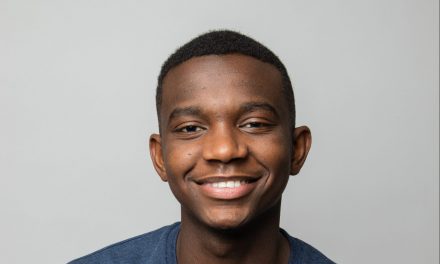“I stumbled upon entrepreneurship as a means to showcase and package my inventions for the world. I think I’m more of an inventor/entrepreneur mix! I love solving problems and thinking of ways that can make people’s lives a little easier.”
says Allisa Song, Co-founder and CEO Nanodropper.
Allisa is a third year medical student at Mayo Clinic Alix School of Medicine, and the CEO of Nanodropper, Inc.
Read on for an insightful interview…

Please tell us the story behind starting NANODROPPER?
It all started from a ProPublica article featured on NPR that was titled, “Drug Companies Make Eyedrops Too Big, And You Pay For The Waste.” I set out to tackle this problem with the intent of creating an immediate solution that is practical and intuitive. With the help of the co-founding team, the Nanodropper adaptor was born.
What is your mission, and do you see yourself continuing with this effort even after graduating?
My mission is to break down barriers in healthcare that perpetuate inequities in the system that we see today. Graduating with my MD will give me both the credentials and stage in enabling me to have greater influence in achieving healthcare reform in the United States.
What was the source of your initial funding for NANODROPPER?
We raised a significant portion of initial funding to gain traction and build prototypes through student-level competitions. We applied to every design and business competition we were applicable for; we ended up with more than 20 awards and recognitions to date!
What are some of the challenges you see in being a student entrepreneur?
This may not be the case for some students, but for me, taking on entrepreneurship when I’m already knee-deep in student debt was a financial risk that I had to personally take on. This is something that’s transferred to your significant other as well, and I think this goes unsaid too frequently. Of course, there’s also amplified time constraints and social sacrifices that are made to grow your business. The last challenge that’s been more relevant recently is the perception from professional investors. They don’t see too many medical student entrepreneurs and it adds to the many barriers to obtain funding. I’ve been fortunate to have a dedicated team and supportive investors that can see the strengths and promises in our unique situation.
How much time do you and your team spend working on your company?
All day, every day! In all seriousness, being an entrepreneur does require adjusting your lifestyle. Juggling my responsibilities at Nanodropper with being a medical student requires creative, efficient uses of my time. It’s tough to add up the hours, but the sense of accomplishment, adventure, and purpose I feel makes it all worthwhile!

Do you see academics getting affected?
Many people might not know that the first two years of medical school are by and large lecture-based classroom learning. I had been out of school for a few years before going to medical school, and lectures were draining for me. Building Nanodropper and hearing the impactful stories from patients and providers has given me the motivation and endurance to stay focused during school and keep in mind what’s important: helping the patient.
What are some things you wish you knew a year (or two) ago?
Reflecting back, I remember being advised many times over that it would be impossible to build a business while in medical school. I had so many moments of self-doubt, and it was disheartening not being able to find someone who was going through the same journey.
The role of CEO can be isolating, and the gravity of responsibility you feel for your team and company can be unrelatable. I’ve since found other start-up CEOs for support, and I think it’s important to build that network if you don’t have one already! I wish I could go back in time and tell my old self that it’s okay not to take all advice to heart. I would remind my younger self to maintain her confidence: you’re attempting something very few have done, and remember that you’re surrounded by a dreamteam of extraordinary people you can rely on!
How do you prioritize your activities in a day/ week?
I like to keep weekly lists of priorities and then write out my daily list. I often have more to-dos than there are enough hours in the day to finish them, and the lists help me stay organized and keep me from feeling overwhelmed.
What is the one quote you live by?
“Never make decisions based on fear.”




